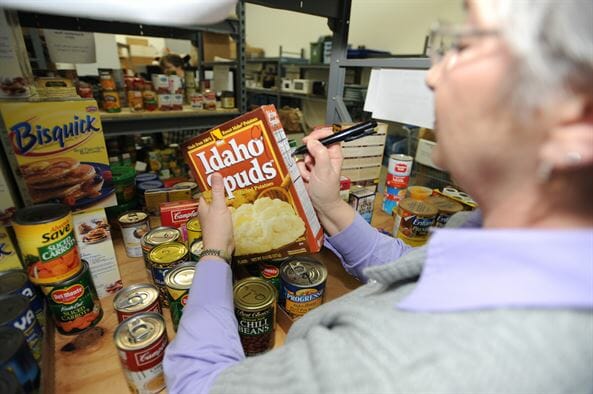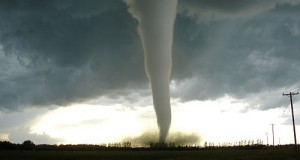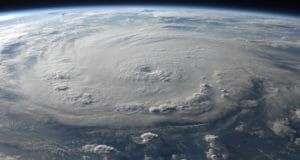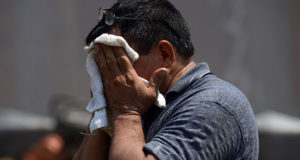Let’s face it: Prepping is an inexact science. There’s no way we can make perfect decisions on how to prep for a disaster when we don’t know what disaster we are prepping for or when it will come. All we can do is make educated guesses, and try to look for any holes in our plans, where we might have missed something important.
That’s why I’m always checking myself, looking to see what I might have forgotten. I read other people’s articles, look around for new products and test out various scenarios, just to see where I might have made a mistake. While a lot of that time I’m not doing anything more than confirming that what I’m doing is working, every once in a while I find a mistake I’ve made, either in not seeing something I need or in not seeing it as being important enough.
When Hurricane Harvey hit the Houston area, I was watching everything that happened. I had a particular interest in that hurricane, because it narrowly missed my home. As I watched people struggle to get out of their flooded homes, I realized that I didn’t have a boat. Should I ever be caught in their situation, a $100 investment in an inflatable boat would prevent me from being stuck and waiting until someone came to rescue me. But I hadn’t made that investment.
Here are a number of common errors of that type, which I’ve found through watching this and other disasters:
Expecting to Bug In and Not Having a Backup Plan
I’ve long counseled that bugging in is the best course of action for most people. There are just too many advantages to bugging in, for that not to be most of our choice, assuming we don’t have a cabin in the woods somewhere. But you’ve got to have an escape plan in place, because you never know what might happen.
Sadly, while many of us talk about having a bug-out plan, few really have one. Instead, they’ve just got some vague idea of what they’ll do. A vague idea isn’t a plan.
Get Free Backup Electricity — And Never Be Without Power!
The people of Southeast Houston certainly couldn’t bug in when the hurricane put six feet of water in their living rooms, no matter now well prepared they were. There are just some things that nature can do to us, which we can’t stand up under; for that matter, our homes can’t stand up under them, either.
Not Being Ready to Rescue Myself
The inflatable boat I just mentioned falls into this category. I live in a hurricane zone. How could I have missed such a thing? Yet, if it flooded here, I probably wouldn’t manage to get out before the water got too deep for my Toyota 4Runner.
I don’t care where you are or what sorts of disasters you might face, you can’t count on anyone else saving you. While the Cajun Navy might just show up at your doorstep, ready to take you off to safety, you can’t be sure they will be. They may not be able to get to where you are.
Not Enough Water
If there’s one survival supply that most people will run short of, I think it’s water. Too many people are quoting the “gallon of water per person, per day” mantra, without stopping to think about it. But the reality is, that gallon of water is just for drinking and cooking, it’s not enough to take care of all your needs. So if you’re only planning on that much, you’re going to have some serious water shortages.
Granted, it’s hard to store enough water to meet your needs. I won’t deny it. That’s why any real water plan has to include water storage, water filtering and water harvesting. You want to be sure that you err on the side of generosity here, as you’ll probably end up needing more than you think you will.
Not Having Supply Caches
This is another one that Hurricane Harvey made extremely clear. Any preppers living in Southeast Houston didn’t have it much better than their neighbors. It doesn’t matter how much food and water they had in their homes; they had to leave it all behind when they were rescued.
The only supplies that are going to help you in a situation like that are supplies that you’ve got stored someplace else. So if you find yourself forced to bug out sometime, you’d better have a good supply cache or two waiting for you.
Tunnel Vision
Real world prepping isn’t like Doomsday Preppers. You can’t afford to be prepping for just one far-fetched scenario. Rather, you’ve got to be preparing for everything. That way, when something does come, you’ll be ready.
That has to include being prepared for some off-the-wall scenarios, as well as being prepared for the much more mundane natural disasters. Nobody is giving any of us a program, with scheduled dates for the next dozen disasters to come. This is a come-as-you-are world, and it will be a come-as-you-are disaster as well.
The sad thing about tunnel vision is that while you might be perfectly prepared for one type of disaster, you are largely unprepared for another. But a few simply changes in your thinking would have included that disaster, as well. So think broadband, and get your head around all the disasters you can.
Thinking Small
It seems that preppers fall into two categories: those that only prepare for natural disasters, with an outside window of 30 days and those who are preparing for a TEOTWAWKI event. Historically, the ones who are preparing for short-term are right … except for one thing … dice don’t have a memory.
The reality is that just because we haven’t had a major disaster in about 100 years, doesn’t mean that we won’t. Yes, chances of a natural disaster are greater, but they aren’t the only options out there. We could have that once in a century event any day now.
Prepping for a long-term post-survival world not only ensures that you’re ready if that sort of scenario does come; it also makes sure that you’re ready for the more mundane natural disasters, as well. But you can’t say the same thing, the other way around. Personally, I’d rather err on the side of caution,than find out that I was wrong, once it’s too late.
Thinking You Have Foolproof OPSEC
If you think your neighbors have no idea that you’re a prepper, it’s time to wake up. Chances are, they have a pretty good idea. Maybe they don’t know to what extent you are prepared, but that doesn’t mean they don’t have an idea what you’re doing. It’s hard to keep a secret and if you have a nosy neighbor, you probably have a lot less secrets than you think.
The question then becomes: How do you deal with that nosy neighbor, when the time comes? You can be pretty sure that they’re going to show up at your door, when the time comes and they run out of food. So you’d better be ready for it.
Just Thinking of Myself and My Family
I know that most of us prep with the attitude that we can’t save everyone, so we’re going to save our family. I’m the same way. But in recent times, I’ve had to rethink that a little. While I’m really still prepping for just myself and my family, I know enough people, who know that I write on survival, that I’m sure at least some of them will be showing up at my door.
It’s one thing to tell someone I don’t know to bug off, but another thing entirely when I know them. I’m not sure how I would react to that, especially if they brought their hungry children along with them. So I’m planning for it. I have lots of extra staples, especially rice and beans. While I can’t stockpile enough to feed them like I’m going to be feeding my own family, at least I’ll be able to give them something.
There’s actually more to this than just getting soft. I’d rather avoid a major battle, with hungry people attacking my home if I can. While I might be able to survive that battle, I’m not sure how many such battles I could survive. Eventually, they’d overrun me or I’d have to bug out. Helping those who come to me, even if it’s just a little, puts off that day when I’ll be forced to fight or bug out.
What would you add to our list? Share your thoughts in the section below:
 Off The Grid News Better Ideas For Off The Grid Living
Off The Grid News Better Ideas For Off The Grid Living




